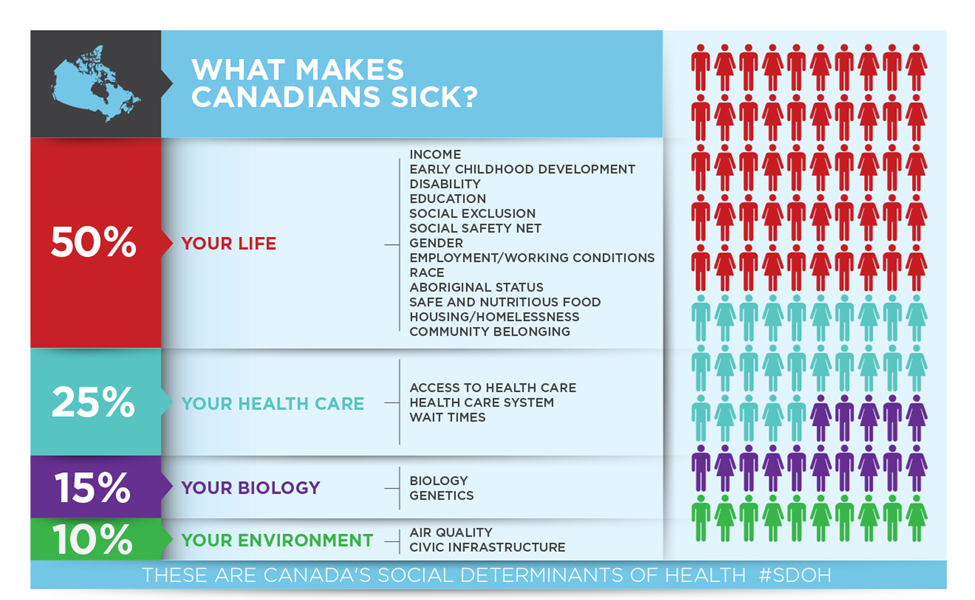By Dr. Cathy Scrimshaw & Dr. Leah Phillips
To enlarge the image on the right, click here.
Given the current precarious state of health care in Alberta, we are reminded now more than ever about the challenge of complexity. We are challenged by our patients’ conditions, by our health care system, and by our own personal experiences and unique perspectives. We know you are exhausted, but please don’t underestimate the impact and influence that each of you have on your patients.
People with chronic pain and people who use substances are not “addicts” or “drug seekers, they are complex individuals, often managing multiple medical conditions. In addition, they are also living in a social environment that is fraught with challenges and stigma.
We know that family physicians are experts in complexity and solving undifferentiated problems. However, there is only so much one family doc can do. Sometimes the real disease lies outside the walls of our clinics. When this is the case, what is our role in terms of advocating for our patients?
The COVID Effect
The COVID-19 pandemic continues to test our resiliency and our health system, and the sad truth is that we are failing. COVID has uncovered gaps in access to both medical care and social supports and we know that this lack of access has direct effects on the health of individuals, their families, and their communities (See Figure 1 – Canada’s Social Determinants of Health).
The social determinants of health have never been more relevant. The recently published (March 2021), report by the Canadian Pain Task Force notes that, ‘the COVID-19 pandemic, racial injustice, growing income inequity, and the opioid overdose crisis have exposed many shortcomings in our society and in the health system1.
Over the past 18 months, we have learned that this is certainly the case in Alberta. Issues ranging from systemic racism in our health system, stigma affecting access to care of patients with complex needs (particularly with chronic pain), and/or accompanying substance use have become blatantly apparent. The pandemic has raised the relevance and impact of complexity for family practices as we are seeing increasing mental health disorders, substance use deaths, homelessness, and lack of trust in science and medicine. The pandemic has dramatically changed the context in which we practice.
So what can we do?
We can advocate. We can raise awareness about these inequities, we can defend our patients’ rights to equitable health care access, and we can promote evidence-based, integrated social and medical care. When it comes to ensuring our patients health care needs are met, does it matter where our lane ends and where someone else’s begins? We have a place of privilege; if not us, than who?

